September 01, 2021 | Andrew Tie
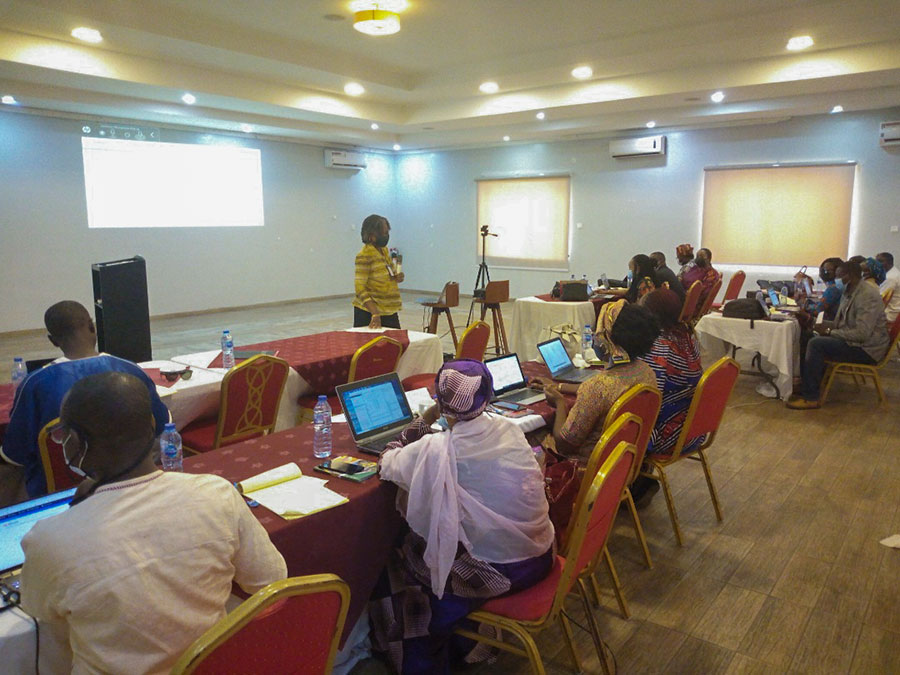
Dr. Sylvia Adebajo, country director of Ciheb Nigeria, speaks to the participants at the STATA training.
Ciheb Nigeria, in partnership with the Federal Ministry of Health, recently facilitated a training to promote a culture of data demand among stakeholders to encourage the use of data on the National Data Repository (NDR) to track program outcomes and impact. The training also aimed to build the capacity of the stakeholders to maximize the use of data on the NDR for research.
The five-day training in early August was developed to build stakeholders’ knowledge on the use of STATA statistical software for data analysis. STATA can be used for routine reporting of indicators not readily available on the NDR dashboard to enable the sustainability of data management processes.
The scope of the training included a wide range of topics such as the overview of NDR, data management, introduction to STATA statistical software for data management and analysis, and practical lab sessions.
Participants at the training included representatives from the Federal Ministry of Health, Ciheb Nigeria staff, and other partners.
The NDR is a de-identified patient-level database that provides near real-time monitoring of the HIV treatment program in Nigeria. It allows for deeper and more comprehensive analyses of patient treatment status, progress, histories, and outcomes that continue to guide decision-making towards achieving HIV epidemic control. It is a Federal Ministry of Health initiative in collaboration with the University of Maryland, Baltimore through funding from the Centers for Disease Control and Prevention.
Contact
Center for International Health, Education, and Biosecurity
Institute of Human Virology
Anthony Okoth
Regional Communications Specialist
Related stories
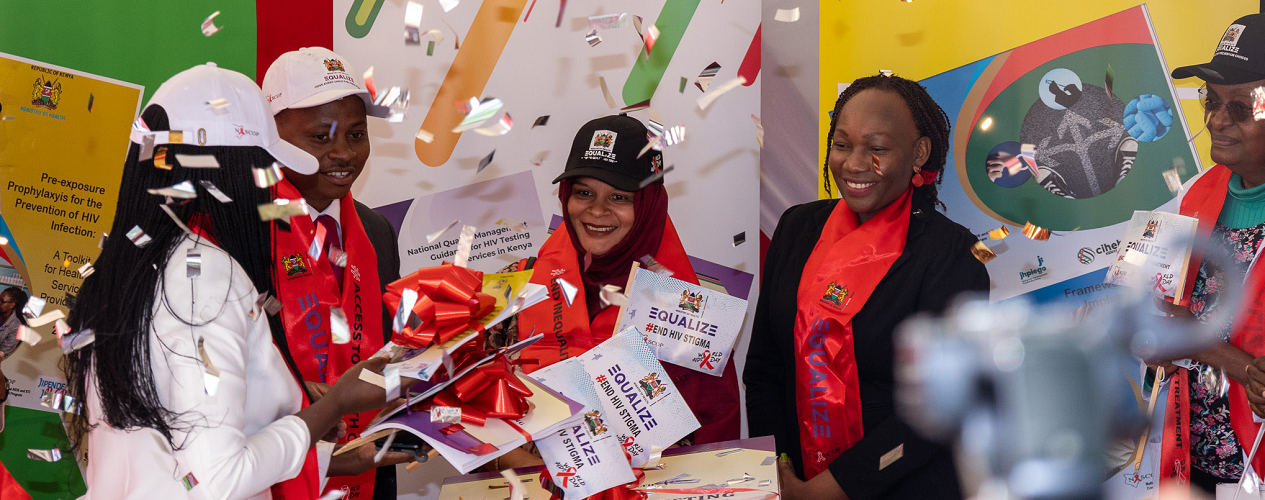
Friday, December 09, 2022
Ciheb-Kenya Joins the Globe in Commemorating the World AIDS Day 2022
Speaking during a pre-World AIDS day event in Nairobi, the Head of the National AIDS and STI Control Program (NASCOP), Dr. Rose Wafula, reiterated that the Ministry of Health, through NASCOP, commits to exploring and connecting the global and national efforts that focus on impact and progress towards the 95-95-95 targets to end the AIDS epidemic by 2030.
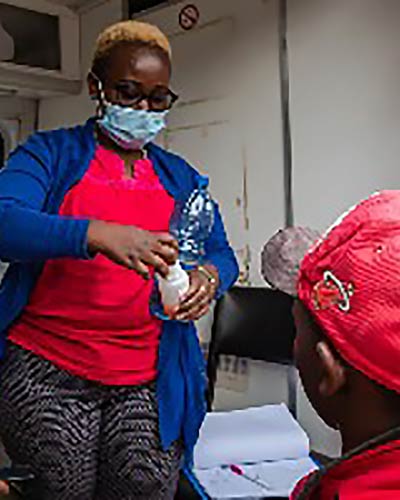
Monday, October 03, 2022
Medically Assisted Therapy Clinic in Kenya Empowers Women
In Nairobi, Ciheb’s PACT Endeleza program, with the assistance of the University of Maryland, Baltimore, and Nairobi City County, established medically assisted therapy (MAT) clinics to reduce the spread of HIV among people who inject drugs (PWID) and provide opioid substitution therapy (OST). These clinics in Mathari and Ngara were established with funding from the President’s Emergency Plan for AIDS relief through the U.S. Centers for Disease Control and Prevention.
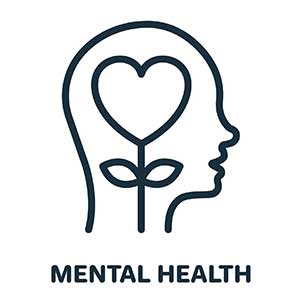
Tuesday, September 20, 2022
Caring for the Caregivers: Mental Health and Healthcare Workers in Kenya
Ciheb Kenya's CONNECT program held a two-day mental health workshop in Nairobi, Kenya. At the workshop, which was tailored for health management teams, facilitators expounded on the importance of good mental hygiene for healthcare workers.
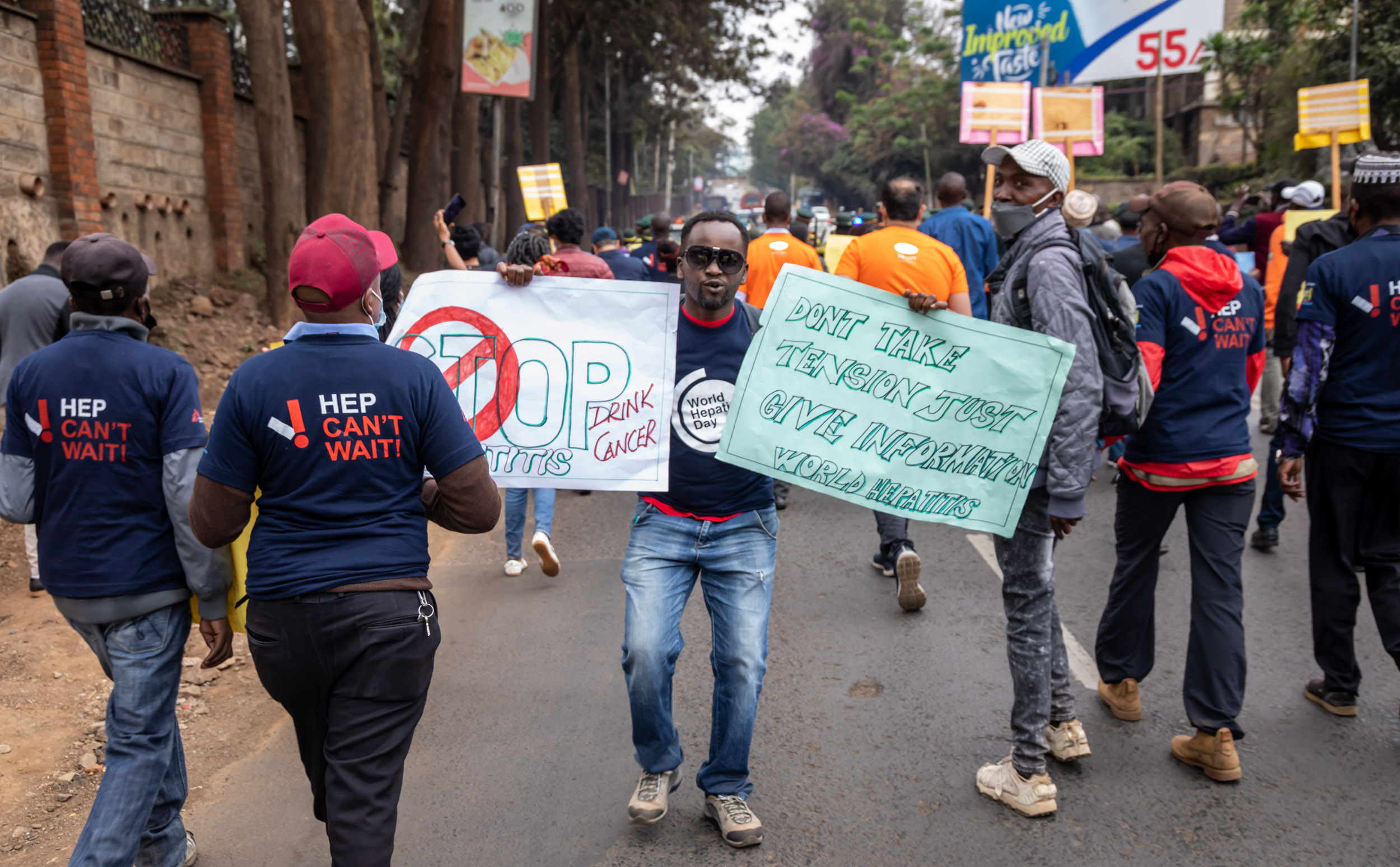
Monday, August 29, 2022
Kenya Celebrates World Hepatitis Day
Hepatitis A, B, and C are the most common of the viral hepatitis in Africa, with the African region accounting for 26% of the global burden for hepatitis B and Cin 2020.
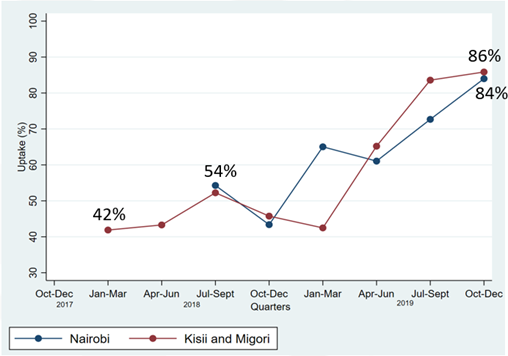
Wednesday, June 01, 2022
New Ciheb Report Compares DSD and Conventional Care
The University of Maryland, Baltimore (UMB) and Ciheb-Kenya recently released a report, “Evaluation of Differentiated Service Delivery Model,” which summarizes results, as related to DSD, from its PACT Endeleza and PACT Timiza programs in Kenya. The evaluation focused on the effect of multi-month dispensing (MMD) (three months or more) compared to conventional care.
Friday, April 29, 2022
CONNECT Program Targets Cervical Cancer
Women living with HIV are at a much higher risk of contracting cervical cancer, which progresses much faster in HIV-positive people due to their compromised immune status.
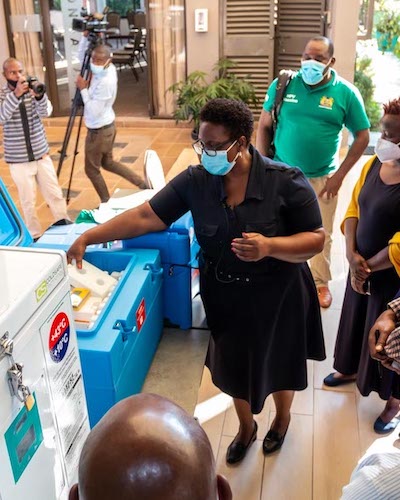
Wednesday, December 08, 2021
Supporting the Rollout of the COVID-19 Vaccine in Kenya
To combat the spread of COVID-19 in Kenya, Ciheb’s local partner, Ciheb-Kenya, received a five-year CDC-funded grant to support national and county activities towards rolling out COVID-19 vaccination. The Technical Assistance to Ready and Accelerate Capacity of public health programs in Kenya (TRACK) program is focused on supporting the development of national policies and training material on COVID-19 vaccination and teaching national trainers to cascade this training to counties.

Friday, October 29, 2021
PrEP used in the fight to end HIV in Kenya
In 2017, the Government of Kenya adopted a new policy called “A Framework for Pre-exposure Prophylaxis of IV in Kenya.” This framework directed the roll out of pre-exposure prophylaxis (PrEP) in Kenya, addressing the key focus areas of: availability, acceptability, accessibility of PrEP, and the holistic integration into the national HIV combination prevention strategy. To align with the government, Ciheb in Kenya’s PACT Endeleza program, which recently ended, also started offering PrEP that same year.
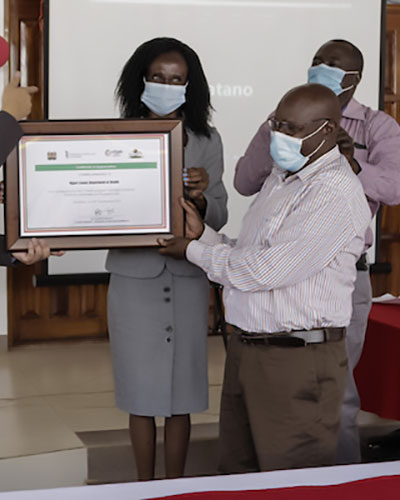
Wednesday, October 27, 2021
Kenya Country Programs Complete Five Years of Impact in HIV Services
September marked the close of Ciheb in Kenya’s two Partnership for Advanced Care and Treatment (PACT) programs, PACT Timiza and PACT Endeleza. Ciheb held closeout events in the three counties that it worked in – Kisii, Migori, and Nairobi City – to commemorate the two programs' accomplishments.
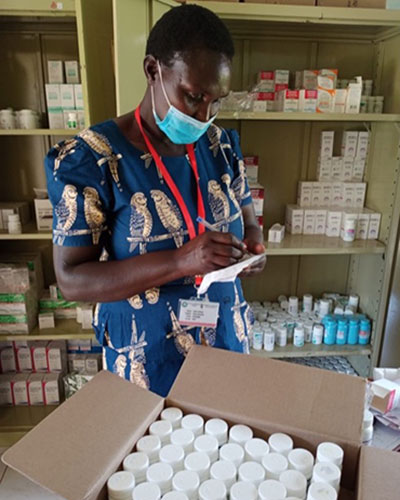
Tuesday, October 12, 2021
Differentiated Service Delivery Improves HIV Care in Western Kenya
HIV care and treatment involves complex needs and a unique set of circumstances for each client, and the conventional one-size-fits-all approach to treatment does not best serve people living with HIV (PLHIV). The client-centered approach known as differentiated service delivery (DSD) provides creative solutions to tailor clinical services to meet the needs of each client, an approach that better serves clients and the Kenyan health system.
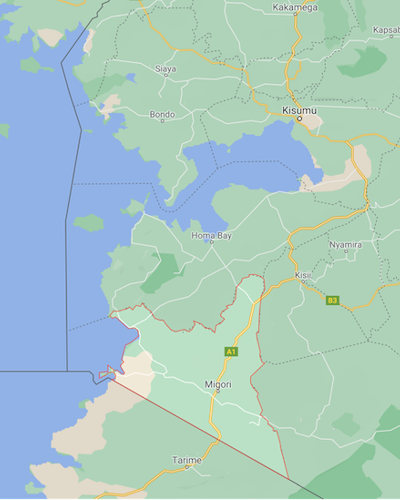
Monday, September 06, 2021
Public Health Impact through Research in HIV and TB in Western Kenya
Kenya has made remarkable strides towards reaching the UNAIDS 95-95-95 HIV targets for epidemic control, and HIV and tuberculosis (TB) services now reach a significant proportion of the Kenyan population.
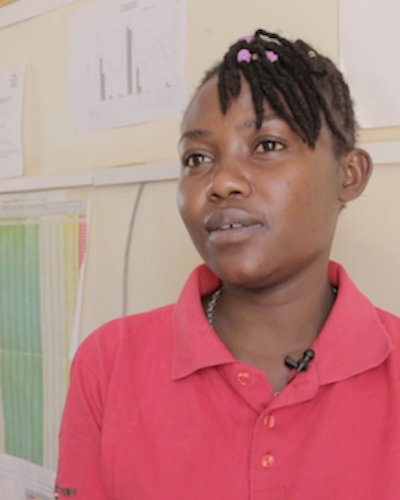
Friday, September 03, 2021
Operation Triple Zero Supports Adolescents in Overcoming HIV
HIV is a serious risk among adolescents in Kenya, and Ciheb has been helping address rising infection rates through Operation Triple Zero (OTZ). OTZ uses a contextual “asset-based approach,” whereby adolescents are considered as resources with potential answers to their challenges and are empowered to take responsibility and action for their health.
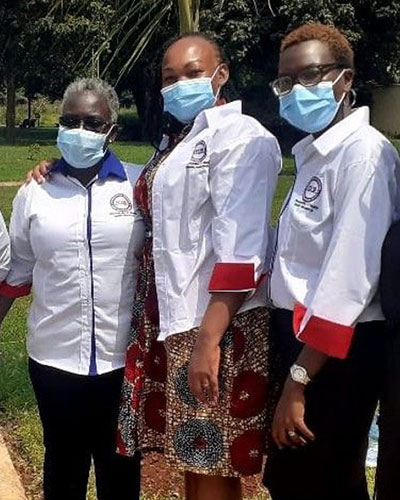
Monday, August 16, 2021
In Kenya, Ciheb Efforts Recognized in Nairobi County CQI Awards
During the summer, the Nairobi Metropolitan Services (NMS) held its annual Health Service Delivery Awards to recognize best-performing health facilities in Nairobi County. Facilities supported by PACT Endeleza won awards in all categories they participated in. NMS evaluated facilities based on their performance in continuous quality improvement metrics.
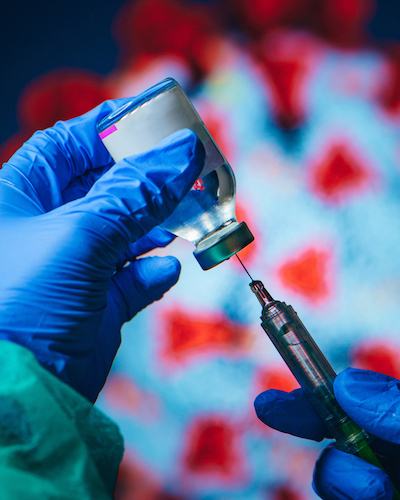
Monday, May 24, 2021
Ciheb-Kenya on the Front Lines of the COVID-19 Vaccine Rollout
Ciheb-Kenya, our local Kenyan partner, has been working with the U.S. Centers for Disease Control and Prevention, the Kenya Ministry of Health, and the National Vaccines and Immunization Programme (NVIP) to support COVID-19 vaccine preparedness through the ongoing Technical Assistance to Ready and Accelerate Capacities of Public Health Programs in Kenya (TRACK) project. Kenya received its first shipment of vaccines several weeks ago and has been moving ahead quickly. As of April 21, a total of 721,509 persons have been vaccinated against COVID-19 countrywide.

